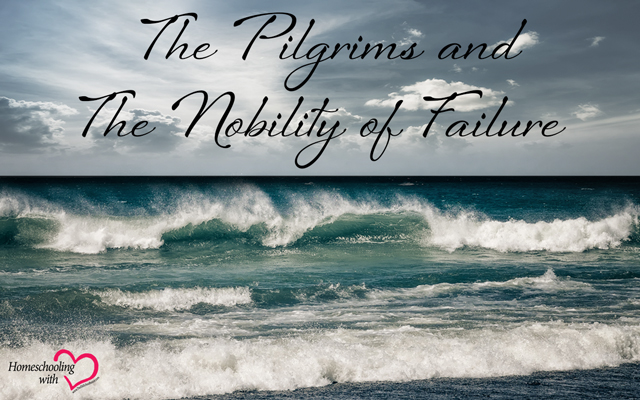The Pilgrims and The Nobility of Failure


Does fear of failure grip your heart? We’ve all experienced it. The chill seep of inner panic, the heightened pulse, the tightened knot on the lungs as the question draws all hope from within. The fatal four-word question: what if I fail?
This question is not unique to our generation. But historically speaking, we answer it with more weakness than most others before us. A peruse of many men who lead American culture into godlessness reveals they were so committed to their cause they believed it was worth failing in. They are a reproof to American Christians who demand all risk be removed before they leap. But the God of the ages has never worked that way; both Scripture and history testify that He demands full, unconditional faith from His people.
One such community were the New Plymouth Pilgrims. In his account, Of Plymouth Plantation, William Bradford records the debate that raged when it was proposed they leave the fair but leeching streets of Leyden, Holland for the wilds of the New World. Just as in our day, there were many among the Pilgrim community who feared failure. To undergo “so big an undertaking that it was open to inconceivable perils and dangers.” The risk of perishing at sea was high, the length of the voyage exhausting to the women and aged. Even if they did survive the seas, their only sure greeting were the ghastly faces of famine, nakedness, and want. Between the twin threats of “sickness” and “savages” they would live in continual danger.
All this proposed by a people who had already braved adversities most of us cannot fathom. These fearful ones were gallant bravehearts by nearly any standard. Yet in the end fear did not stop them. Calmly and confidently, they weighed each danger of failure against the danger of the known. Hard labor was stealing their health, sinful influence their children, and political uprisings their future. In the conclusion:
“It was granted the dangers were great, but not desperate; the difficulties were many, but not invincible…True it was that such attempts were not be undertaken without good ground and reason, rashly or lightly; or, as many had done, for curiosity or hope of gain. But their [the Pilgrims] condition was not ordinary; their ends were good and honorable; their calling, lawful and urgent; therefore they might expect the blessing of God on their proceedings, Yea, and though they should lose their lives in this action, yet might they have the comfort of knowing that their endeavour was worthy.”
For the Pilgrims it was more worthy to fail being obedient than to survive being compromised. They knew Who had called them and were willing even to fail for His name’s sake. And to those of us who wish to bring up godly families He requires the same nobility of failure.
Kenzi Knapp is a follower of Christ, homeschool graduate and student of history. A fourth generation Missourian she enjoys writing about daily life enrolled in Gods great course of faith and His story throughout the ages at her blog, Honey Rock Hills.
Source: Of Plymouth Plantation by William Bradford, rendered into modern English by Harold Paget in 1909 and published by The Vision Forum 2009: p. 22-23











































